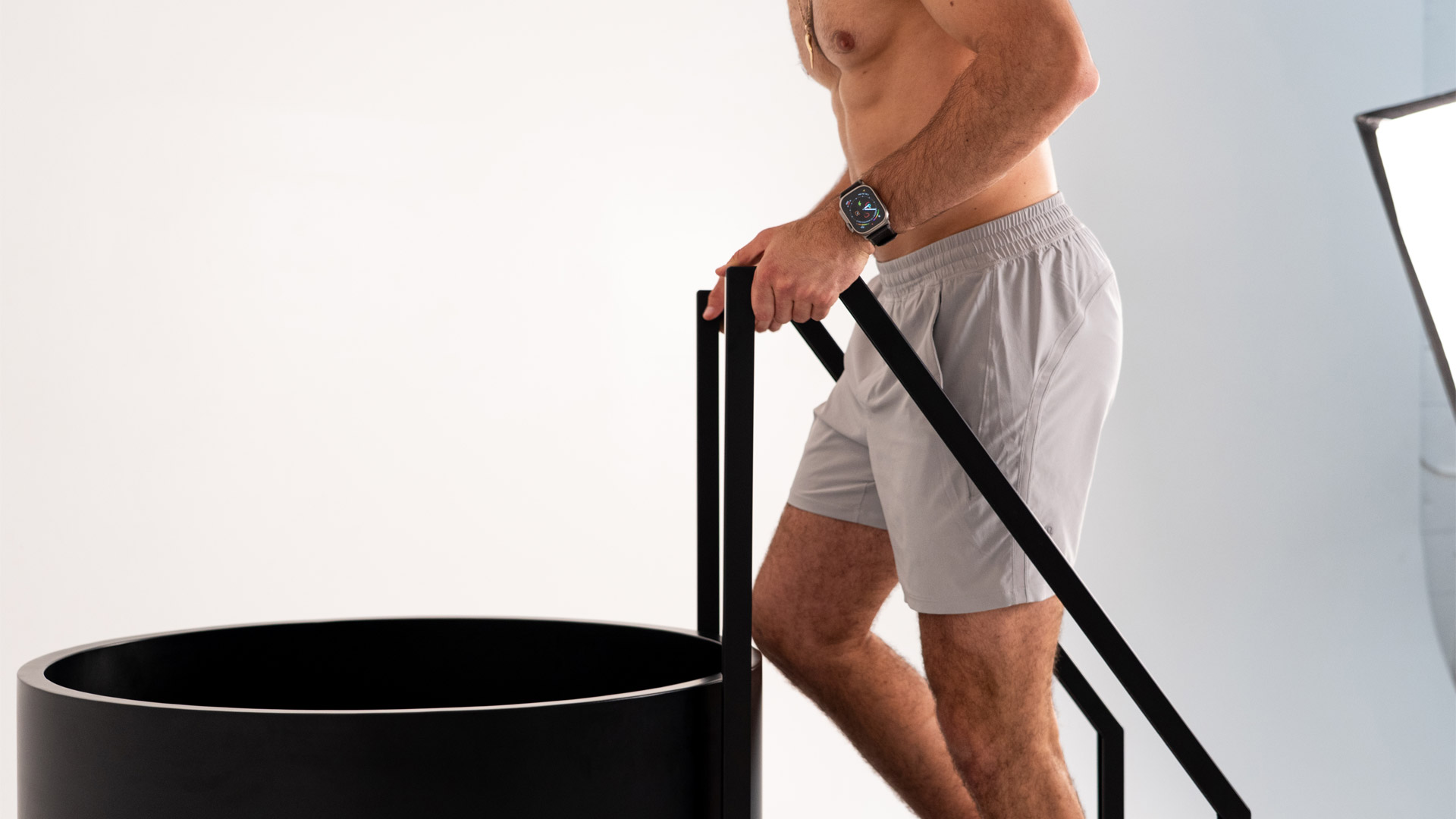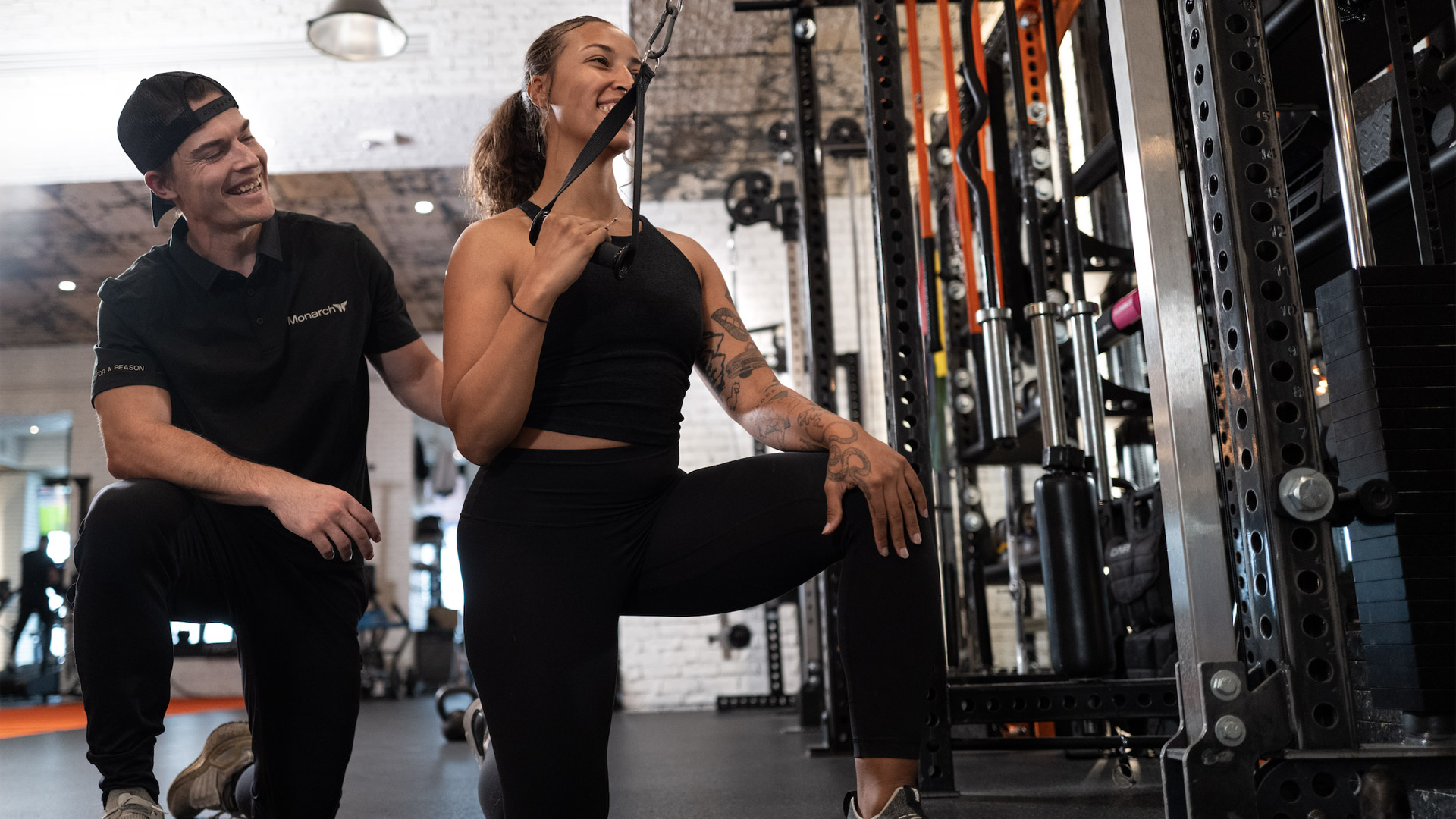All Categories

Should you eat before your workout? That is a rhetorical question… the answer is always of course.
Elevate your clients’ performance with the help of the National Academy of Sports Medicine (NASM) and Coach360! Discover the latest tips on pre-workout nutrition to optimize their results. Find out why it’s crucial to fuel up, and learn the when and how behind this important practice.
An entire area of research dedicated to pre-workout fueling wouldn’t exist if there weren’t documented benefits to its practice. There is a truth that eating within specific windows of time around your training can maximize your workout, and today you’re going to learn why you should ALWAYS eat before you work out.
In this blog, we’ll go over the importance and benefits of fueling up before you hit the weights, run the court, or even go out on a hike.
Before diving into the best foods to maximize your workout, it’s important you understand why pre-workout fueling is important. First, exercise requires energy. The only way your body can generate energy for exercise is by breaking down stored energy that comes from the food we eat or from storage sources (body fat, muscle, and liver glycogen). However, the availability of “energy” from storage is limited and can take time to be metabolized into ATP, or energy, during your workout.
Have you ever felt a little sluggish at the beginning of your workout? Does it take time to “kickstart” your system? Well, if you haven’t consumed any food before you train then it’s likely due to the fact that your body needs time to be able to break down stored energy to power your workout. Where’s that stored energy coming from?
Your body always has free ATP or energy flowing in your blood that is available for immediate use, and that can supply you with energy for a few seconds. After that is used up, you have your phosphocreatine system, however, that will only last about 10-15 seconds. Lastly, you have your anaerobic and aerobic energy systems which can last anywhere from 2 minutes to a few hours depending on the fuel being utilized.
So, if you don’t eat before you train, what is being broken down for energy? First, stored glycogen or carbohydrates are going to be broken down by your muscles and liver. This is called glycogenolysis and this is the fastest method and pathway to generate ATP. This is also the only pathway that can generate energy at high exercise intensities. At lower intensities, your body can begin to oxidize fatty acids for energy (which comes from stored fat), however, this process can take a long time.
So, why is it important to eat before you train? For starters, you are supplying your body with immediate energy to give you more strength, provide you with more focus, and prevent early fatigue and even injury during your session. Consuming a pre-workout meal or snack is all about boosting PERFORMANCE. Research shows that even something as small as 30-60g of carbohydrates 30-60 minutes prior to training can prevent early fatigue and increase time to exhaustion.
So which foods are most ideal for pre-workout meals? If we think about energy systems, carbohydrates are the main fuel to power ALL of our energy systems (regardless of exercise intensity). Carbohydrates can be digested and absorbed in as little as 15 minutes, supplying your muscles with immediate and available energy.
Fats can also supply your body with energy. However, fats tend to be utilized at lower intensities because they take much longer to be digested and absorbed.
Want info on what to eat after your workout? Here’s a helpful wellness blog on the importance of nutrition and recovery.
Protein does not directly influence exercise performance or provide the body with “energy” for exercise. A weird concept, but it is true. Consuming protein before a workout isn’t going to allow you to train longer or harder. However, it can delay soreness, provide the body with extra recovery, and prevent excessive muscle breakdown, which is never a bad thing!
What should your top go-to pre-workout meals/snacks be? Read below for a few examples. And for more tips on what you can eat to boost nutrition and performance, check out NASM’s Certified Sports Nutrition Coach course.
Oatmeal is a rich complex carbohydrate that the body can digest easily and can sustain energy levels for quite some time! Through different fruits and honey into the mix and now you’re maximizing carbohydrate absorption since different types of carbs absorb through different transporters.
For example, glucose and fructose are absorbed via different transporters in the gut, allowing for maximal carbohydrate absorption. Dark chocolate is a great addition because it is rich in magnesium. An important electrolyte/mineral is lost in sweat and is needed for muscle contractions.
Protein is never bad to consume regardless of the time of day. Prior to a workout, consuming protein can boost the recovery process and prevent excessive muscle breakdown. An additional plus to consuming protein as a pre-workout snack? It makes the need to consume protein immediately after your workout not as important. However, protein doesn’t provide us with the energy we are looking for during exercise… so you must throw in some rich carbohydrates like granola and fruit to get the boost you need!
Sweet potato is an extremely rich complex carb. While it takes a little longer to digest than a white potato, the fiber component and slow release of energy into your system provide you with sustained levels so you won’t fizzle out too quickly.
Avocado is an excellent healthy fat selection and is high in potassium. Another important electrolyte is lost in sweat and is needed for muscle contraction and normal fluid balance. Combing fats with a carbohydrate also helps slow the release of energy into your system so you can have more sustained levels over a long period of time.
Sushi is the perfect combination of something “light” that has protein, carbohydrates, electrolytes, and healthy fat! Protein to prevent muscle breakdown, carbohydrates and fats for energy, and sodium (from soy sauce) to help with your hydration levels.
While the effects are not significant if you’re performing low-intensity exercise or sessions under 45 minutes, a lack of proper nutrients before exercise can put you in a very catabolic state. Catabolism refers to the process of breaking down bigger molecules into smaller molecules.
Regarding exercise, when you don’t have adequate fuel in your system your body begins to break down your muscles and stored energy sources for energy. Major risks associated can include low blood sugar and increased risk for dehydration. When you mix those two phenomena together you are increasing the risk of injury and illness, especially if you are not focusing on proper post-workout nutrition.
Should you consume a pre-workout snack? The answer is always YES. Your guidelines for pre-workout fueling are as follows:
Remember, strategic fueling can only help you… never hurt you!
Powering the Business of Health, Fitness, and Wellness Coaching

By Elisa Edelstein

By Robert James Rivera

By Elisa Edelstein

By Elisa Edelstein

By Elisa Edelstein

By Robert James Rivera

Powering the Business of Health, Fitness, and Wellness Coaching
